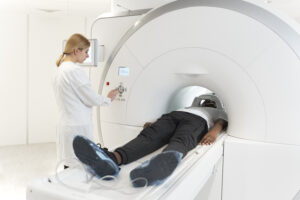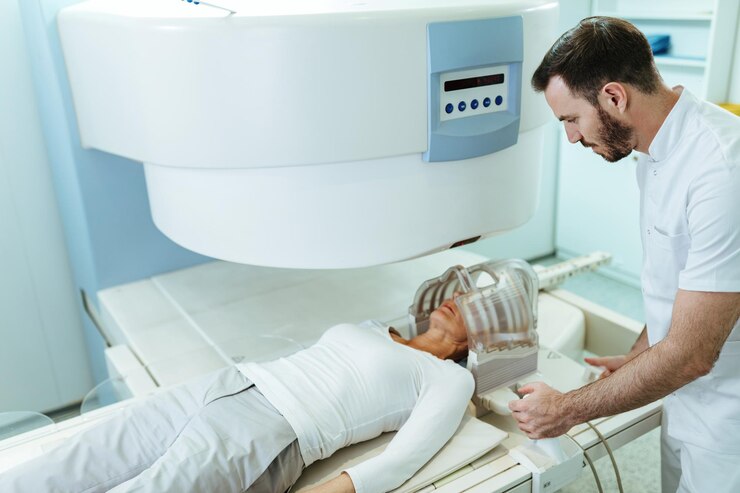Radiotherapy vs Chemotherapy: What are the dissimilarities and their side effects
Radiotherapy vs chemotherapy We will explore radiotherapy vs. chemotherapy. Both therapies are used for cancer treatment and to target and control cancer cells.
The goal of radiation therapy is to damage and eliminate cancer cells, as opposed to chemotherapy, which uses potent medications to reduce or kill rapidly dividing cancer cells. One thing they have in common is that they both want to get rid of cancer cells, stop the disease from spreading, and shrink tumours to ease pain and other symptoms.
Radiation therapy vs chemotherapy: How do these therapies work?
Radiation therapy and chemotherapy attack cancer cells differently.
How Chemotherapy Works?
Chemotherapy is a “systemic” treatment that uses strong chemicals to attack cancer cells everywhere in the body. Its comprehensive strategy makes chemotherapy effective even on incurable malignancies. Chemicals like chemotherapy kill fast-dividing cancer cells, but they can also damage healthy cells, causing adverse effects. Chemotherapy is administered through injections, tablets, and IV treatments.
How Radiation Therapy Works
Since radiation treatment is “local” it only affects the area around the tumor. Instead of drugs, radiation therapy uses beams of high energy, such as X-rays or protons. Depending on the case, radioactive materials can be placed near cancer to send these beams to the tumour from the outside or the inside. This customised method protects nearby healthy cells from damage.
Chemotherapy and radiation therapy work together because radiation targets cancer cells by stage, while chemotherapy heals the body. Cancer patients can make better decisions when they know their therapy options.
How can you decide which therapy you need?
Cancer type and stage play an important part in deciding the best way to treat it. Radiation, chemotherapy, or both may be used. Many types of treatments, including surgery, may work best in some cases. The best way to treat cancer will rely on what stage it is in. An in-depth look at your symptoms by your health care team will help them decide the best way to treat you.
Radiotherapy vs chemotherapy Doctors often suggest a combination of treatments, like targeted therapies, radiation therapy, surgery, and chemotherapy. This aims to increase the chances of controlling or treating the illness by attacking it from various angles. By working closely with your healthcare team and asking questions about the pros and cons of each choice, you can give yourself the power to make more informed treatment decisions.
Side Effects of radiation vs chemo
There may be side effects because both chemotherapy and radiation therapy kill cancer cells and hurt healthy cells at the same time. Here, we discuss the most prevalent adverse effects and medication administration.
Chemotherapy side effects
People usually get chemotherapy in the form of pills or through an IV over some time. The cycles aim to be as successful as possible by going after cancer cells at certain points in their life cycle. Because chemotherapy moves through the bloodstream, it has effects all over the body and causes many bad things to happen.
Some common side effects of chemotherapy are:

- Fatigue
- Hair loss
- Blood count changes
- Nausea and vomiting
- Peripheral Neuropathy
Radiotherapy side effects
Various methods are used to deliver radiation therapy, such as external beams, internal radiation (brachytherapy), and systemic radiation. The type of cancer and its location determine the method used. Since the beams are directed to where they are needed most, radiation therapy generally only causes issues in certain areas.
Some Common Side Effects of Radiation Therapy:
- Skin irritation
- Fatigue
- Digestive issues
- Hair loss
Chemo vs. Radiation Treatment for Cancer
Radiation therapy and chemotherapy are both used to treat cancer, but they do different things. Whether radiation or chemotherapy is best depends on where the cancer is and how far along it is. For example, skin cancer or other cancers close to the skin’s surface may not respond to chemotherapy.
To figure out the best way to treat you, your doctor needs to see where the cancer is and how bad it is. It is a great alternative to chemotherapy for people with skin cancer because it kills cancer cells effectively without causing any bad side effects. People who have been diagnosed with common skin cancer can use this safe and effective way of therapy without surgery.
What Cancer Treatment Is Best for Me?
The oncologist works closely with the other team experts to determine the best treatment for each patient. Treatments can include chemotherapy, radiation, surgery, and immunotherapy, all of which can be used alone or together.
You should talk to an expert if you want to know what your options are, why one treatment is better than another, how it will be done, and if there will be any bad effects. You can learn anything from them, and they will describe everything to you.
Conclusion:
To conclude, cancer patients should have radiotherapy and chemotherapy. The two crucial cancer medicines kill cancer cells by working together. Radiotherapy uses concentrated, high-energy beams to kill cancer cells while maintaining healthy tissues, unlike chemotherapy. The kind, stage, and location of the cancer determine which treatments are employed. Knowing that both procedures can harm cells, malignant or healthy, helps patients make better decisions. To battle cancer more successfully, engage with doctors to create a personalized treatment plan. radiotherapy vs chemotherapy

FAQ’s
What is harder on your body, radiation or chemo?
Every part of the body is affected by chemotherapy, so it is more likely to cause systemic side effects like feeling sick, losing hair, and having a weak immune system. This gets in the way of the whole process. It doesn’t hurt the whole body, but it can make you tired and hurt your face.
Which is better, radiotherapy or chemotherapy?
Neither is always “better”; it depends on the type and stage of cancer. Radiotherapy is better for small tumors than chemotherapy for large cancers that spread throughout the body. They’re used together a lot.
What are the worst side effects of radiotherapy?
Some of the worst side effects are tiredness, skin irritation, and possible long-term damage to organs or tissues nearby, like the heart, lungs, or reproductive systems.
What stage of cancer is radiotherapy used for?
Radiotherapy can be used at any stage of a cancer diagnosis: early-stage cancers to treat or shrink the tumor, locally advanced cancers to control symptoms, and advanced cancers to help people who are dying.

